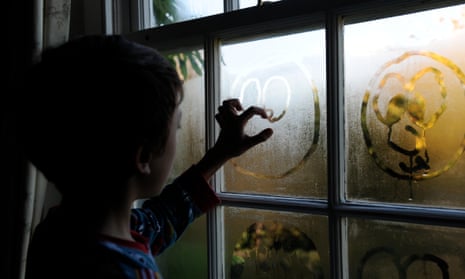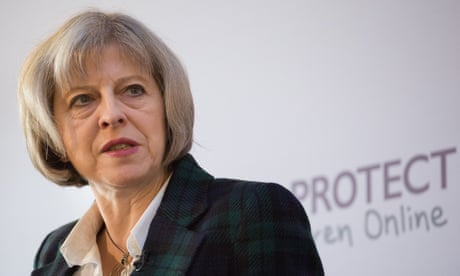“What kind of society fails to protect children? British society. Here’s the proof”, The Guardian
Zoe Williams, Opinion, UK child abuse inquiry, London, 20 Oct. 2022
For seven years, a UK inquiry has examined child sexual abuse and heard from victims. The results should shame us into action

As the report of the independent inquiry into child sexual abuse (IICSA) delivers its findings, seven years in the making, the numbers alone are incredibly hard to confront: 79% of the thousands of victims and survivors who gave testimony were under 11 when the sexual abuse started. Children with disabilities and those who were already neglected were exploited disproportionately – a chilling insight into predatory behaviour: how it takes the very quality of vulnerability that should engender empathy and protection, and opportunistically exploits it instead.
Yet it is in hearing the voices of these victims and survivors that you begin to understand the vast and pressing duty this inquiry creates, a duty of root and branch change in how children are perceived, cared for and protected, and alongside that a duty of collective as well as institutional atonement.
Twenty-one per cent of the Truth Project participants said they sought the opportunity to tell someone in authority about their experiences; 15% just wanted their account to be believed. For some, this was because they had previously not been listened to or taken seriously when they disclosed that they had been sexually abused. Barbara said, “I want my voice heard, I want it on record … I am not the child in the police station.” Another survivor recalled, “There’s so many moments where I was genuinely crying out to people and there was nothing, no one to listen to me.”
These crimes didn’t stop at the perpetrators, but were cloaked and underpinned by surrounding agencies and institutions who dressed up their cowardice as incredulousness. The analogies people use are heartrending. Phoebe, forced at gunpoint into sex work, was “like a little fish in a shark tank”; Adrienne felt “like a ghost – you are the last thing anyone thinks of”.
Prof Alexis Jay, the chair of the inquiry, touches starkly and soberly on the changing attitudes to abuse over the decades: from the 1950s, when people still had a notion of the “seductive child”; through the 1960s and 70s, when allegations would be stonewalled simply because the accused was by definition more powerful than the accuser; the 1980s, when it was yet to be resolved whether a child could or could not consent to sex; the 1990s, when alarm bells were written off as “over-zealous” and “moral panic”; and into this century, when even as the approach became more child-focused the terrain has still been marked by observable “differences in the treatment of wealthy and well-connected individuals, as opposed to those who were poorer, more deprived and without access to networks of influence”.
Certainly, our understanding of child sexual abuse has changed, in the sense that it is an unmitigated moral wrong, none would defend it; and this has tracked our better understanding of trauma, the near limitless harm it can wreak across a lifetime. Yet Jay’s analysis insists that, even though abuse may be better understood, systems to prevent it are still failing.
Of the 20 recommendations, three form the centrepiece: the first, a statutory requirement of mandatory reporting, which could ultimately make it a criminal offence not to report allegations. This is seismic: consider, for instance, last year’s report by Lambeth council into 40 years of failure of the children in its care. By 2020, the council was aware of 705 children’s home residents making complaints of sexual abuse. “Nobody in relevant positions of authority during that time could truthfully have said they did not know about the abuse of children,” it concludes. The second is a scheme for national monetary redress for victims. The third is the creation of a child protection authority, one in England, one in Wales, with the powers to inspect any institution associated with children.

Half of the victims and survivors were abused by family members, the rest in institutions ranging from the Catholic church to boarding schools, from young offender institutions to children’s homes. This careful, granular study reveals so much about the nature of predatory behaviour, and the culpability of the organisations that surround it. Abusers don’t just need their organisations to cover up their behaviour after an allegation, they need the structure of a church or boarding school or children’s home to legitimise their place in a child’s life to begin with. This creates in those bodies with loco parentis responsibility an overwhelming duty not to wait for an allegation and investigate it fairly, but to be constantly vigilant. This duty has often been ignored, and for decades, with effects that will continue to be felt for many more decades still.
This inquiry was always opposed by the Conservatives, Boris Johnson saying that police money spent investigating historic cases of child sexual abuse was being “spaffed up a wall”, in what sounded just like a characteristically vulgar lack of empathy. Perhaps, though, the government foresaw that this would have political implications that would have to be acted upon.
While child sexual abuse knows no class barriers, and can happen at Ampleforth, one of the world’s foremost Catholic boarding schools, as readily as in a children’s home, money still matters. When children are placed in care hundreds of miles from their homes, because private providers have found cheaper rents in Rochdale; when London and the south-east have precisely no secure children’s homes, despite safeguarding being far better in a secure children’s home than in a young offender institution: these decisions create the ideal conditions for abuse to flourish.
The state cannot hold itself above responsibility when all actors, state and non-state, are called upon to regain the trust of the children who were failed and failed so comprehensively. So many are still having, as adults, to live with those failures.
- Zoe Williams is a Guardian columnist
- Do you have an opinion on the issues raised in this article? If you would like to submit a response of up to 300 words by email to be considered for publication in our letters section, please click here.